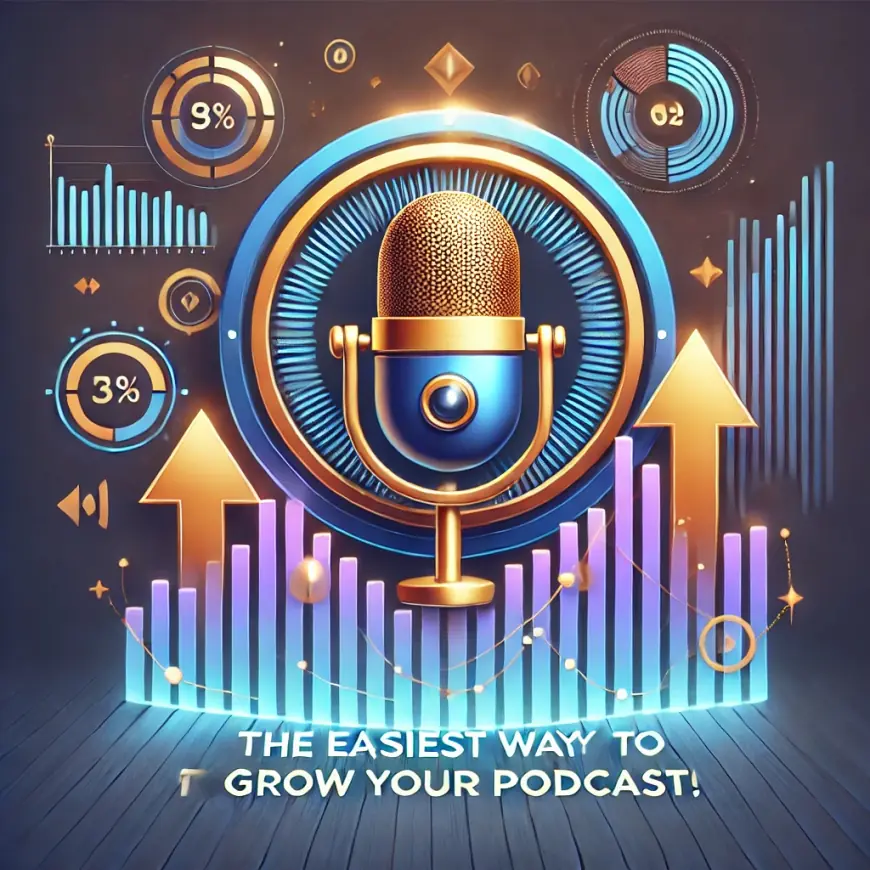How to Build a Strong Community Around Your Podcast

Podcasting is about establishing a community that interacts with your material and values your message, not only about distributing ideas. Strong podcasts may inspire loyalty, word-of-mouth advertising, and steady expansion. However, creating such a group requires intentional work and plans that transcend mere episode publication.
1. Explain the Goals and Niche of Your Podcast
Any great community starts with a well-defined goal and identity. The niche of your podcast defines the kind of people you draw in as well as the dialogues you start.
- Know your audience: Know what they need and whom you are aiming at. Are you speaking with hobbyists, businesspeople, or aficionados for popular culture?
- Create a mission statement: Clearly outline what your podcast offers. For instance, your audience and value proposition are defined as "Empowering small business owners with actionable marketing strategies".
Once you clear your goals, you will find it simpler to connect with people who have interests and values.
2. Promote Listener Interaction
Interaction fuels a podcast community. Make interacting with you and each other simply for your listeners.
- Get comments: After each episode, urge viewers to offer their opinions or questions on particular subjects, therefore acting as a call to action.
- Design surveys and polls: Get comments and start discussions with Google Forms or Instagram Stories.
- Host Q&A Events: Set aside episodes to respond to listener questions, therefore promoting inclusiveness and giving the audience value.
Promoting two-way communication turns quiet listeners into engaged players.
3. Leverage Social Media Platforms
Engaging your audience outside of your podcast can be done effectively with social media. It offers a venue for community-building and real-time contacts.
- Choose the Right Platforms: Identify where your target audience spends their time. While LinkedIn is best for professional niches, sites like Twitter, Instagram, and Facebook are wonderful for encouraging conversations.
- Post Consistently: Share memes connected to the theme of your podcast, behind-the-scenes materials, episode samples, and updates.
- Engage with Followers: Respond to comments, join relevant hashtags, and participate in trending discussions to grow your reach and engage with your community.
If your podcast is about fitness, for instance, you may include inspirational quotations or workout advice next to your episode advertisements.
4. Design a Dedicated Online Space
Think about setting up a central hub where your readers may connect, exchange ideas, and communicate.
- Start a Facebook Group: Through conversations and member-only materials, a private group creates closer relationships and makes members feel unique.
- Use Discord or Slack: These sites let you build channels for various subjects, therefore facilitating segmented and ordered dialogues.
- Create a Forum Right on your Website: If you have a dedicated website, include a forum allowing readers to pose questions, comments, or ideas.
These venues provide your community a forum to network and explore subjects even in non-active podcasting.
5. Offer Value Beyond Episodes
Create a devoted community by offering value outside the subjects of your podcast episodes.
- Exclusive material: Provide behind-the-scenes videos, extra episodes, or downloadable materials including guidelines or templates.
- Live events and meetups: Host virtual or in-person events where your listeners can interact with you and other members of the community.
- Merchandizing and Giveaways: While running your podcast, branded products or contests might assist boost a feeling of community by means of identification.
For a podcast on productivity, for example, you may offer downloaded freebies such as special productivity planners or ideas.
6. Collaborate with Your Audience
Engage your listeners in the content-generating process so they will feel as though they are vital to your podcast.
- Feature listener stories: Share from your audience fascinating tales or experiences in dedicated sections or whole episodes.
- Invite Listeners as Guests: If relevant, bring community members onto your show to discuss their perspectives.
- Run Crowdsourced Content Campaigns: Allow your audience to vote on subjects for the next episodes or offer ideas for conversation.
Cooperation helps listeners to feel more responsible for the success of your podcast, so raising their investment in it.
7. Network with Other Podcasters
Engaging with podcasters will enable you to reach more people and leverage their audiences.
- Cross-promote Episodes: Partner with podcasters in similar niches to recommend each other’s content.
- Participate in Podcasting Events: Attend or speak at conferences and webinars to network with like-minded creators and their listeners.
- Guest Appearances: Guest on other podcasts to provide your knowledge and introduce your show to an additional audience.
By means of these partnerships, your podcast can be introduced to a larger audience, therefore expanding your listening base and generating important dialogues.
8. Promote a Positive Culture
Maintaining an involved community depends mostly on friendly and courteous surroundings. By modeling the behavior you wish to see, you help to set the tone for good contacts.
- Moderate Discussions: Actively monitor your online spaces to ensure conversations remain constructive and free of negativity.
- Show Appreciation: Thank your listeners for their contributions, whether it’s sharing feedback, promoting your show, or participating in events.
- Celebrate Milestones: Acknowledge important community achievements, such as hitting download goals or anniversaries.
A good culture motivates your audience to remain active by encouraging loyalty and involvement, therefore valuing them.
9. Track Engagement Metrics
Track the events in your community to know what is working and what has to be changed.
- Social Media Engagement: Measure likes, shares, comments, and overall follower growth.
- Podcast Reviews and Ratings: Good ratings show that people value your material.
- Regarding Subscriptions and Downloads: Track the audience of your podcast to make sure your efforts at community building pay off.
Using Google Analytics, Buzzsprout, or Chartable, you can compile useful insights to hone your strategy.
10. Stay Authentic
Developing trust and creating real bonds with your audience depends on authenticity.
- Be transparent: Share your journey, struggles, and successes to show your listeners that you’re relatable.
- To establish consistency, stay consistent and interact with your community often releasing episodes.
- Listen Actively: Show that you value listener feedback and are willing to implement changes based on their suggestions.
A real approach builds the relationship between you and your listeners and promotes loyalty.
In conclusion
Building a thriving community around your podcast takes time, effort, and dedication. By clearly defining your podcast's purpose, fostering meaningful interaction, leveraging social media platforms, and providing value beyond your episodes, you can attract an engaged audience that actively supports your work.
A strong and vibrant community doesn’t just expand your podcast’s reach and influence; it also turns your listeners into loyal advocates who passionately champion your content. Partnering with the Best Podcast Marketing Agency can further amplify your efforts, ensuring your podcast connects with the right audience. Stay authentic, maintain consistency, and watch your podcast community flourish and grow.
What's Your Reaction?
 Like
0
Like
0
 Dislike
0
Dislike
0
 Love
0
Love
0
 Funny
0
Funny
0
 Angry
0
Angry
0
 Sad
0
Sad
0
 Wow
0
Wow
0



















































